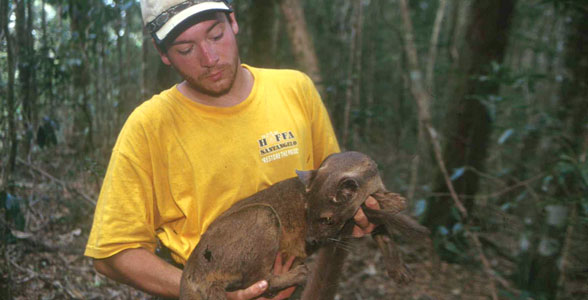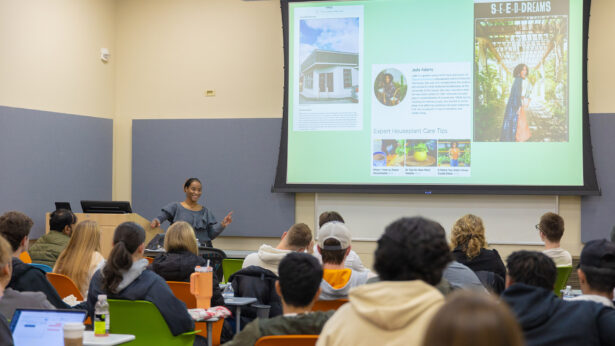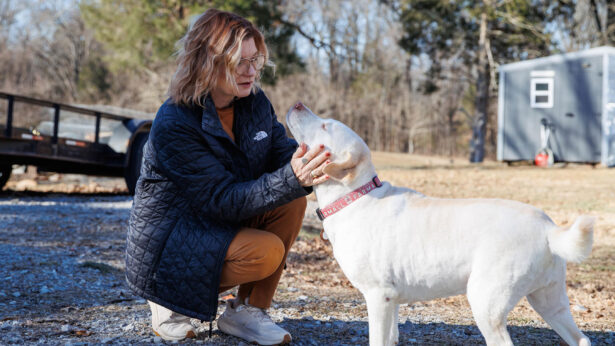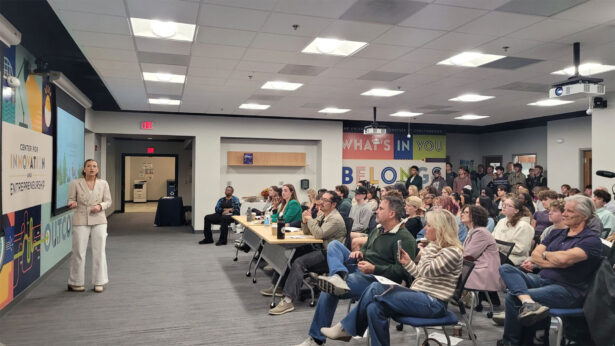Foosas help control the predators that devour the human food supply on Madagascar. So when Luke Dollar discovered villagers had killed a foosa, he launched a poster campaign to “Save the fossa, save the harvest.”
The campaign has been a success, says Dollar, and its effectiveness has inclined him to expand his educational efforts to the youngest members of Malagasy society, most of whom receive fewer than five years of formal education.
“You can take care of the younger and future generations forever by providing enough education to get them out of subsistence agriculture and hunting for bush meat,” says Dollar.
From his personal funds and donations from a few ardent supporters, Dollar finances the educations of eight children–most of them from the village of Ambodimanga (literal translation: at the base of the mango tree) on the island’s northwestern coast.
“We identify the kids with exceptional promise and send them to school,” he says. “We fund room, board, tuition, tutoring–everything they need.” The full cost per pupil is less than $1,000 a year.
“As long as they stay in school–all the way to graduate school if they want–I’ll find the money to support them,” Dollar says.
Since he began funding the students in 2002, only one has dropped out. Dollar’s beneficence has but one catch: His wards must commit to working in some sector of the environment, whether as park rangers, ecotourism guides, or assistants on one of his research projects.
Though trained as a scientist, Dollar is, by equal measure, a humanist, who laments Madagascar’s lack of even the most basic amenities.
“I’ve seen villagers suffering from treatable malaria, polio, rickets, and scurvy,” he says. “You haven’t had a gut check until you’ve looked into the eyes of someone you know whose child has just died from a lack of $2 worth of medicine.”
Listen to Luke Dollar and see the fossa at:



